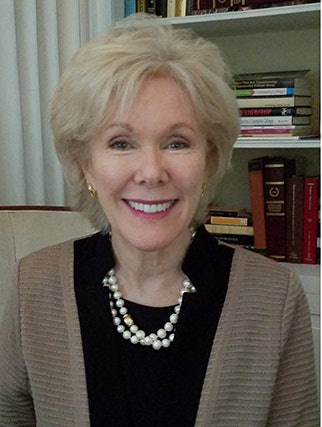Leaders recognize that their responsibilities include motivating followers — to galvanize them toward a common goal. They recognize that, by elevating and mobilizing others, they will be better positioned to achieve a shared vision.
During a recent Summer Leadership Institute, two residing community college presidents — serving as learning facilitators — urged Community College Leadership Program (CCLP) doctoral students to consider the following statements adapted from Carol Dweck's Growth Mindset: the power our beliefs have on our lives; the power we have to control our beliefs; resilience as a product of mindset; the impact our lives have on others.
False rumors, antagonistic diatribe, social media and nightly news often fan political and social tensions. These, in turn, intensify polarization and partisanship, byproducts that perpetuate religious intolerance, gender inequality and racial hostility. Adding fuel to this tension, the COVID-19 pandemic has exacerbated feelings of futility and isolation. It has aggravated unrelenting uncertainties and chronic stress stemming from housing and food insecurities. Further, it has contributed to a tremendous lack of connectedness; how we communicate and engage with friends, family and colleagues has dramatically changed.
 Dr. Margaretta B. Mathis
Dr. Margaretta B. Mathis
The cacophony plays out on a daily basis. Meetings with planned outcomes in mind are often disrupted by the dissonance and distress that must be addressed when one’s colleagues, friends and/or family members have been struck by COVID or other life forces.
Among these tragedies and uncertainties, leaders are called upon to cultivate core values (e.g., integrity, diversity, belief in others, growth mindset, resilience, accountability) and help constituents navigate toward rational and responsible transformation — transformation that fosters a culture of leadership, continuous learning, respectful conversation, supportive connections, agility and creativity. As put by John E. Roueche, M. Melissa Richardson, Phillip W. Neal and Suanne D. Roueche in The Creative Community College: Leading Change Through Innovation: “Creative leaders transform mindsets, attitudes, and cultures to welcome change … (They) know that relationships between those within the college are most crucial to student success.”
Meaningful, positive connections infuse the needed ingredient to overcome the worst social evils such as poverty, crime and drug use; they transcend race, ethnic background or family structure. Transformational leaders encourage and model honest, courageous communication, glean from diverse perspectives, nurture involvement, are informed by data and frequently evaluate progress and direction.
According to Joel Kinnamon and Terry O'Banion in "Creating a Culture of Leadership," “Community colleges cannot create substantive and sustainable cultures of teaching, learning, evidence — or any kind of positive cultures — without the vision and support of highly competent leaders at all levels of the institution.” In 2019, Kansas State University’s (K-State’s) CCLP updated its doctoral courses to align with leadership competencies identified by the American Association of Community Colleges in 2018. Program core values include fostering leadership throughout institutions to improve student success, diversity, equity, inclusivity and learning. Throughout the program, CCLP doctoral students are challenged to develop viable and sustainable solutions, based on data and best practices, to address daunting issues.
Internships, capstone initiatives and dissertation studies conducted by K-State’s CCLP graduates shed light on trends and practices to foster positive connections and leadership toward serving community college students and surrounding communities. A sample of recent (2019-2021) dissertation titles by graduates of K-State’s CCLP suggests the breadth of interests, concerns and exploration of practices by current and aspiring practitioners/scholars that are designed to address some of our country’s most compelling community college issues. These can be found by visiting the CCLP website: coe.k-state.edu/academics/program-areas/community-college-leadership/
Throughout the program, CCLP doctoral students engage with national leaders to anticipate ongoing and post-pandemic needs, explore new norms and plan for the future. Leadership is, most certainly, not for the faint-hearted. Leaders are reminded that no one person can do it alone. The skill is in the “how” of fostering relationships, involving stakeholders and developing leaders who are equipped to deliver a brighter tomorrow amid the chaos and uncertainty of today.
Dr. Margaretta B. Mathis, serves as senior director for the John E Roueche Center for Community College Leadership. The Roueche Center Forum is co-edited by Drs. John E. Roueche and Margaretta B. Mathis of the John E. Roueche Center for Community College Leadership, Department of Educational Leadership, College of Education, Kansas State University.
This article originally appeared in the December 9, 2021 edition of Diverse. Read it here.
















